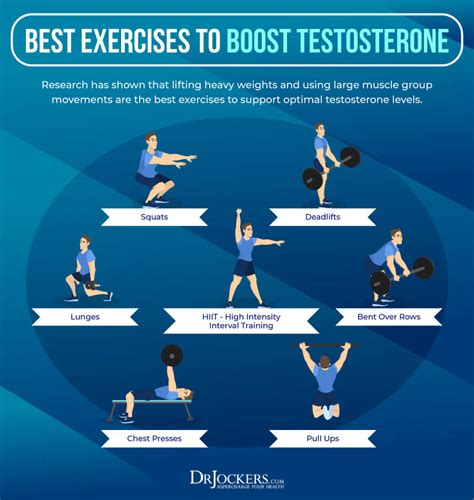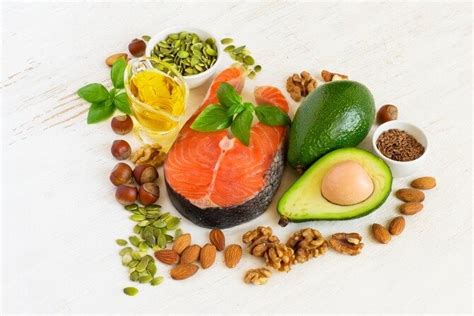What are actionable steps to naturally optimize male testosterone levels for vitality?

Testosterone is a crucial hormone for men, playing a vital role in energy, mood, muscle mass, bone density, and libido. As men age, testosterone levels can naturally decline, but various lifestyle factors can also impact its production. The good news is that many natural, actionable steps can be taken to optimize these levels, leading to enhanced vitality and overall well-being. This article delves into evidence-based strategies to naturally boost your testosterone.
The Power of Nutrition: Fueling Testosterone Production
Your diet is a cornerstone of hormonal health. To support optimal testosterone levels, focus on a balanced intake of macronutrients and essential micronutrients.
Embrace Healthy Fats
Cholesterol, a precursor to testosterone, is derived from dietary fats. Incorporate monounsaturated and polyunsaturated fats found in avocados, nuts, seeds, olive oil, and fatty fish like salmon. Saturated fats in moderation from sources like grass-fed beef can also be beneficial, but avoid trans fats entirely.
Prioritize Protein Intake
Adequate protein is essential for muscle maintenance and overall health. Aim for high-quality protein sources such as lean meats, poultry, eggs, dairy, and legumes. Protein helps in regulating body weight, which indirectly supports healthy testosterone levels.
Don’t Forget Micronutrients
Key vitamins and minerals play a direct role in testosterone synthesis. Zinc, found in oysters, beef, pumpkin seeds, and spinach, is crucial. Vitamin D, often called the “sunshine vitamin,” is also strongly linked to testosterone levels; ensure adequate sun exposure or consider supplementation under medical guidance. Magnesium, selenium, and B vitamins also contribute to hormonal balance.

Exercise Smart, Not Just Hard
Physical activity is a powerful testosterone booster, but the type and intensity matter.
Lift Weights and Strength Train
Resistance training, particularly compound movements like squats, deadlifts, bench presses, and rows, has been shown to significantly increase testosterone levels. Aim for 3-4 sessions per week, focusing on progressive overload.
Incorporate High-Intensity Interval Training (HIIT)
Short bursts of intense exercise followed by brief recovery periods can also stimulate testosterone production and improve overall fitness. However, avoid chronic endurance training, which can sometimes have the opposite effect on testosterone if overdone.
Avoid Overtraining
While exercise is beneficial, excessive training without adequate recovery can elevate cortisol (stress hormone) and suppress testosterone. Listen to your body and ensure sufficient rest days.

Prioritize Quality Sleep
Sleep is when your body repairs and regenerates, including hormone production. Chronic sleep deprivation is a major contributor to low testosterone.
Aim for 7-9 Hours Nightly
Studies show that men who sleep less than 6-7 hours per night consistently have lower testosterone levels. Make sleep a priority, aiming for 7 to 9 hours of high-quality sleep each night.
Optimize Your Sleep Environment
Create a cool, dark, and quiet bedroom. Establish a consistent sleep schedule, even on weekends. Avoid screens (phones, tablets, computers) at least an hour before bedtime, as blue light can interfere with melatonin production.

Master Stress Management
Chronic stress elevates cortisol, a hormone that directly competes with testosterone. When cortisol levels are high, testosterone levels tend to be low.
Practice Relaxation Techniques
Incorporate stress-reducing activities into your daily routine. This could include meditation, deep breathing exercises, yoga, spending time in nature, or engaging in hobbies you enjoy. Finding healthy outlets for stress is crucial for hormonal balance.
Limit Caffeine and Alcohol
While moderate consumption is generally fine, excessive caffeine and alcohol can disrupt sleep patterns and elevate stress hormones, negatively impacting testosterone.

Adopt a Healthy Lifestyle
Beyond the core pillars, several other lifestyle factors contribute significantly to testosterone optimization.
Maintain a Healthy Body Weight
Obesity, especially excess abdominal fat, is strongly linked to lower testosterone levels. Fat cells contain an enzyme called aromatase, which converts testosterone into estrogen. Losing excess weight can significantly improve testosterone levels.
Avoid Endocrine-Disrupting Chemicals
Exposure to certain chemicals found in plastics (BPA, phthalates), pesticides, and personal care products can interfere with hormone production. Choose natural alternatives where possible and store food in glass containers.
Limit Alcohol and Quit Smoking
Heavy alcohol consumption and smoking are known to negatively impact testosterone production and overall health. Reducing or eliminating these habits will have a profound positive effect.
![Healthy Lifestyle - [INTERNAL ARCHITECT]](/images/aHR0cHM6Ly90czEubW0uYmluZy5uZXQvdGg/aWQ9T0lQLnFyNWxlNmtGWnFxUDFtbmlFV0xUbUFIYUxIJnBpZD0xNS4x.webp)
Conclusion
Optimizing male testosterone levels naturally is a holistic endeavor that involves consistent attention to diet, exercise, sleep, stress management, and overall lifestyle choices. By implementing these actionable steps, you can not only support healthy hormone production but also significantly enhance your energy, mood, muscle mass, and general vitality. Consult with a healthcare professional before making significant dietary or lifestyle changes, especially if you have underlying health conditions.









